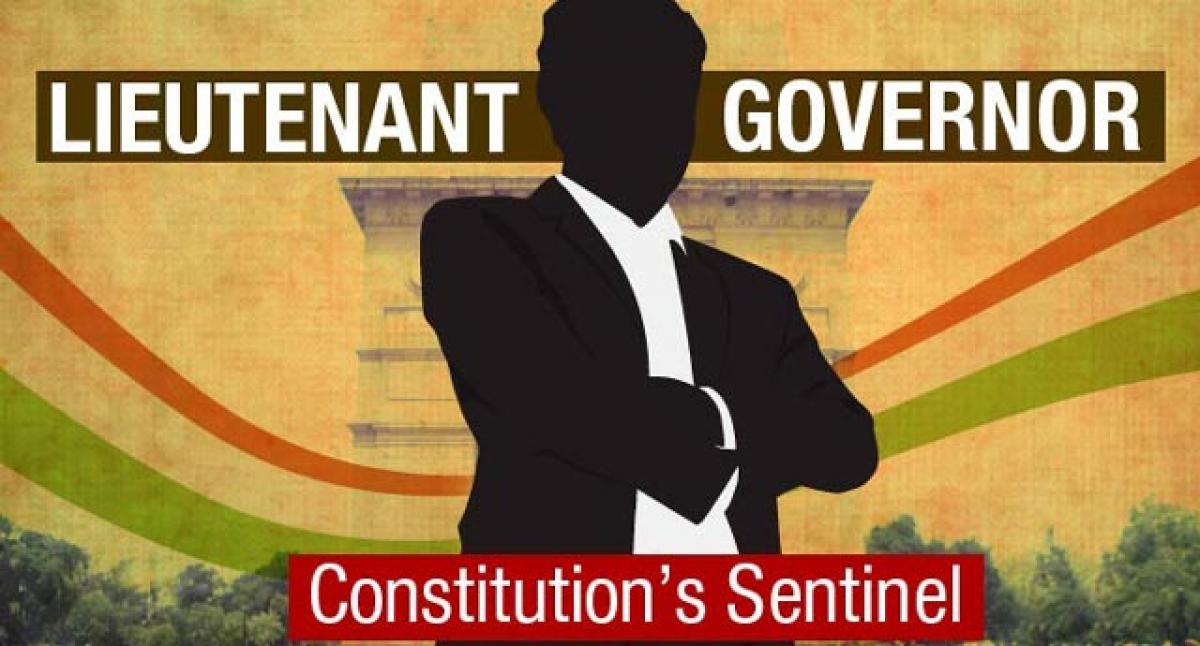Live
- ‘Get Set, Grow Summit 2024’ Focuses on Digital Detox for Families
- Stokes motivates his team to put in extra effort, says England pacer Potts
- From overcoming setbacks to leading India in U19 Women’s Asia Cup, Niki Prasad's amazing journey
- Driving Enterprise Security: Inside Venkata Reddy Thummala’s Leadership Journey
- Constitution debate: PM Modi hails 'Nari Shakti'; makes strong pitch for 'United Bharat’
- Abhijeet Bhardwaj: Revolutionizing Enterprise Analytics with Innovation and Expertise
- Bihar: Inquiry initiated against principal who went to buy veggies during school hours
- Press Sri Lankan Prez for release of Indian fishermen: TN Cong MP to EAM Jaishankar
- TN: DMK postpones executive meet due to heavy rains & Parliament session
- Porous silicon oxide electrodes can fix durability issues in batteries: Researchers
Just In

It’s a killer world and everything topsy turvy! First a former American Afghan war veteran goes on a killing spree in Dallas to avenge the death of his black brethren, then security forces shoot down Hizbul Mujahedeen’s poster boy Burhan Wani leading to angry public protests, in Nice, France the ISIS struck terror via a truck mowing down 84 and injuring hundreds on Bastille Day.
It’s a killer world and everything topsy turvy! First a former American Afghan war veteran goes on a killing spree in Dallas to avenge the death of his black brethren, then security forces shoot down Hizbul Mujahedeen’s poster boy Burhan Wani leading to angry public protests, in Nice, France the ISIS struck terror via a truck mowing down 84 and injuring hundreds on Bastille Day.
Phew, democracy won as Turkey successfully nailed a military coup and last but not least, the Modi Sarkar rewrote a Governor’s Constitutional norms and turned democracy on its head, but lost out when the Supreme Court restored the gubernatorial halo! So far so good.
The sordid tale is set in Arunachal Pradesh where the BJP through its Governor Rajkhova preponed the Assembly session to mid-December to test Nabam Tuki’s government majority as 21 of Congress’s 47 MLAs had rebelled and joined hands with 11 BJP legislators in the 60-member House.
Tuki closed the Assembly gates so rebel Congress-BJP MLAs held an extraordinary session in a community hall and removed the Speaker who had disqualified 14 of the 21 legislators.
The Governor cited collapse of law and order and imposed President’s rule. In February, Congress rebel Kalikho Pul was anointed Chief Minister after winning a trust vote in the Assembly. The Congress and Tuki moved the Supreme Court which reinstated Tuki’s Government leaving the Governor and BJP red-faced.
In another dramatic turnaround the Congress replaced Tuki before the trust vote in the Assembly with Pema Khandu and rebel-turned-Chief Minister Pul returned to the Party fold with 30 dissident MLAs.
All’s well that ends well. Yet the happenings in Arunachal have once again brutally exposed two highly reprehensible facets of our rulers’ democratic temper. At the political level, governance is shamelessly all about cutting deals, side deals and underhand deals. At the Constitutional level, the BJP finds itself in hot waters with the Supreme Court, twice over. Remember Uttarakhand.
Undeniably the main takeaway of the Supreme Court judgment was underscoring the Governor’s role and powers. Importantly, the five judges Constitutional Bench downsised the gubernatorial discretionary powers under Article 174. It stated: “He must not embroil himself in any political thicket... He must keep clear of any horse-trading, unsavoury political manipulations, irrespective of the degree of their ethical repulsiveness. He must remain aloof from discord, disharmony, discontent or dissention within individuals and Parties.
“Who should or shouldn't be leader of a Party is a political question to be... resolved by the Party itself. The Governor cannot make such issues a matter of his Constitutional concern. He cannot have overriding authority over representatives of the people.”
Further, the Apex Court rejected Rajkhova’s justification for advancing the Assembly session to take up a motion for the Speaker's removal. “The participatory role of the Governor concerning the removal of a Speaker, can neither be understood nor accepted, and is unwarranted.”
Holding that the Governor wasn’t a guide or mentor to a Speaker, it averred, that he cannot ask a Speaker to discharge his functions as he considers constitutionally appropriate as both have independent Constitutional responsibilities.
Call it déjà vu or Et tu NDA, either which way Modi NDA’s is no different from National Front VP Singh’s 1989, Vajpayee’s 1999 nor UPA’s 2004 who got Governors appointed by their predecessors to resign. Since 2014 nine Governors have resigned, Kerala’s Sheila Dikshit, Maharashtra’s Sankarnarayana, W Bengal’s Narayanan, UP’s Joshi, Pudicherry’s Kataria, Goa’s Wanchoo, Nagaland’s Ashwani Kumar, Chhattisgarh’s Shekhar Dutt, Mizoram’s Purushothaman and Uttarakhand’s Paul.
Each Governor interpreted (read misinterpreted) the rule book any which way he wanted, drawing his own conclusions based more often than not on delusions as long as he and his benefactors at the Centre could rule the roost.
Notably, the Supreme Court order has once again opened the Constitutional Pandora’s box on the Governor’s role, his qualifications and Constitutional obligations and duties. Raising a moot point: Is he the Centre’s chaprasis? Or, the keeper of people’s faith as the Constitutional head of a State. Will ideologies be the touchstones for matters of a Constitutional nature?
By Poonam I Kaushish

© 2024 Hyderabad Media House Limited/The Hans India. All rights reserved. Powered by hocalwire.com







